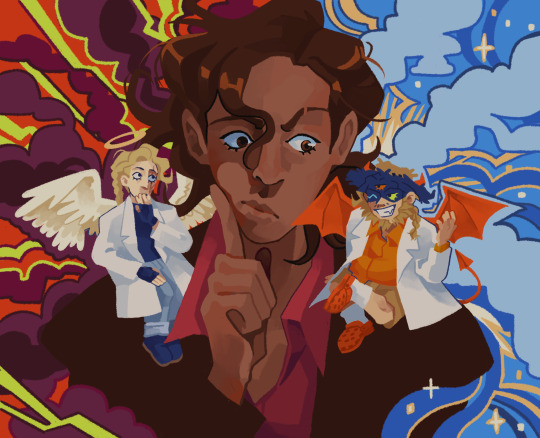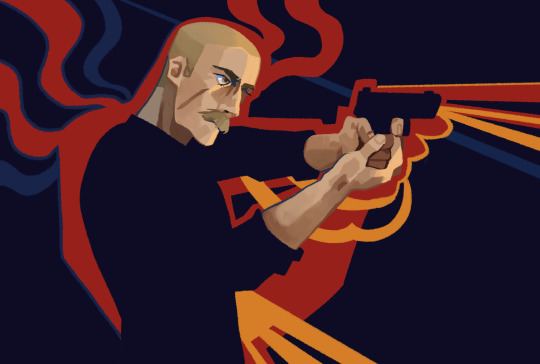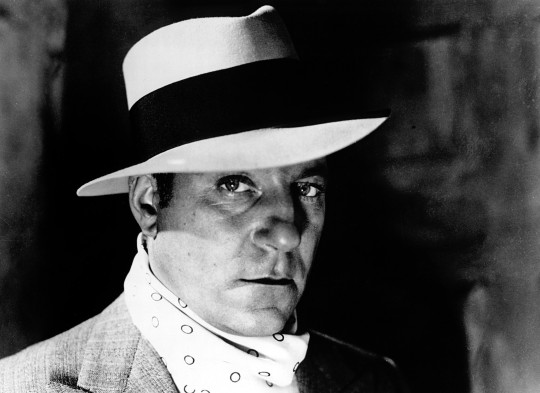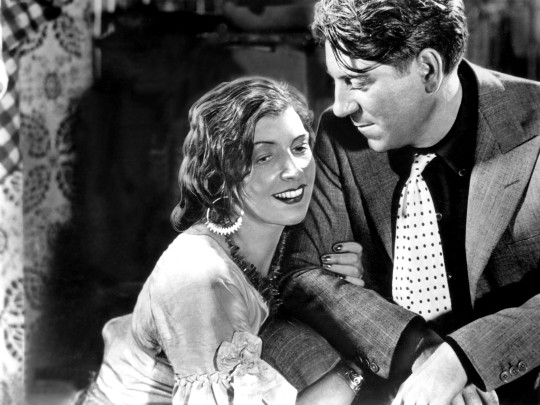#dietrich lurk
Explore tagged Tumblr posts
Note
let me ask what are ur trio face hc? Like what do lurk,bridge n foxx look like to u? Im asking cuz i need some inspo
I actually have some picrews I’ve used to make em
In order is Foxx, Bridge, Lurk. Depending on the picrew i either give Lurk some form of curly hair or just kinda fluff like bridge.






#rocky's ramblings#rocky rambles#dietrich lurk#django bridge#rocky answers#agent lurk#dr bridge#silly little headcanons#agent foxx#alekander foxx#picrew
0 notes
Text

Dietrich Bonhoeffer's Theory of Stupidity
Taken from a circular letter, addressing many topics, written to three friends and co-workers in the conspiracy against Hitler, on the tenth anniversary of Hitler’s accession to the chancellorship of Germany…
‘Stupidity is a more dangerous enemy of the good than malice. One may protest against evil; it can be exposed and, if need be, prevented by use of force. Evil always carries within itself the germ of its own subversion in that it leaves behind in human beings at least a sense of unease. Against stupidity we are defenseless. Neither protests nor the use of force accomplish anything here; reasons fall on deaf ears; facts that contradict one’s prejudgment simply need not be believed- in such moments the stupid person even becomes critical – and when facts are irrefutable they are just pushed aside as inconsequential, as incidental. In all this the stupid person, in contrast to the malicious one, is utterly self-satisfied and, being easily irritated, becomes dangerous by going on the attack. For that reason, greater caution is called for than with a malicious one. Never again will we try to persuade the stupid person with reasons, for it is senseless and dangerous.
‘If we want to know how to get the better of stupidity, we must seek to understand its nature. This much is certain, that it is in essence not an intellectual defect but a human one. There are human beings who are of remarkably agile intellect yet stupid, and others who are intellectually quite dull yet anything but stupid. We discover this to our surprise in particular situations. The impression one gains is not so much that stupidity is a congenital defect, but that, under certain circumstances, people are made stupid or that they allow this to happen to them. We note further that people who have isolated themselves from others or who live in solitude manifest this defect less frequently than individuals or groups of people inclined or condemned to sociability. And so it would seem that stupidity is perhaps less a psychological than a sociological problem. It is a particular form of the impact of historical circumstances on human beings, a psychological concomitant of certain external conditions. Upon closer observation, it becomes apparent that every strong upsurge of power in the public sphere, be it of a political or of a religious nature, infects a large part of humankind with stupidity. It would even seem that this is virtually a sociological-psychological law. The power of the one needs the stupidity of the other. The process at work here is not that particular human capacities, for instance, the intellect, suddenly atrophy or fail. Instead, it seems that under the overwhelming impact of rising power, humans are deprived of their inner independence, and, more or less consciously, give up establishing an autonomous position toward the emerging circumstances. The fact that the stupid person is often stubborn must not blind us to the fact that he is not independent. In conversation with him, one virtually feels that one is dealing not at all with a person, but with slogans, catchwords and the like that have taken possession of him. He is under a spell, blinded, misused, and abused in his very being. Having thus become a mindless tool, the stupid person will also be capable of any evil and at the same time incapable of seeing that it is evil. This is where the danger of diabolical misuse lurks, for it is this that can once and for all destroy human beings.
‘Yet at this very point it becomes quite clear that only an act of liberation, not instruction, can overcome stupidity. Here we must come to terms with the fact that in most cases a genuine internal liberation becomes possible only when external liberation has preceded it. Until then we must abandon all attempts to convince the stupid person. This state of affairs explains why in such circumstances our attempts to know what ‘the people’ really think are in vain and why, under these circumstances, this question is so irrelevant for the person who is thinking and acting responsibly. The word of the Bible that the fear of God is the beginning of wisdom declares that the internal liberation of human beings to live the responsible life before God is the only genuine way to overcome stupidity.
‘But these thoughts about stupidity also offer consolation in that they utterly forbid us to consider the majority of people to be stupid in every circumstance. It really will depend on whether those in power expect more from people’s stupidity than from their inner independence and wisdom.’
-Dietrich Bonhoeffer, from ‘After Ten Years’ in Letters and Papers from Prison (Dietrich Bonhoeffer Works/English, vol. 8) Minneapolis, MN: Fortress Press, 2010.
110 notes
·
View notes
Text
~ M+S Words into Potions Event ~

Totally not a banner I just made
I am doing Moon + Seraph's Words into Potions challenge in March! Decided it was a good excuse as any to complete the first draft of my romantasy project(and to also give it a name 😅).
Title: To Hear a Lovebird(may or may not be a placeholder 👀)
Genre: Fantasy, Romance, Adventure
Summary: Prunhilt Helisende, an elven farmer living quietly in a dark forest, is forced to travel with a mercenary after they were both seen together by a group of foreign bounty hunters. Just interacting with the charismatic but mysterious Stigbyrr has put a price over her head, and now she has to travel with him until he can find some way to get her back home safely without the elusive bounty hunters noticing. Along the way, the pair find out more about each other that may effect the already blossoming romance between them, or pull them even closer.
I just started writing this and I have not talked about it much, so I have no links besides a small snippet to share.
Also, have this excerpt.
He brought the mug to his lips again, but stilled at the sight of two figures approaching him. Dietrich the tavern keeper, and the pretty lady who played the waldzither only a few moments ago. “Stigbyrr, this is Prunhilt Helisende. Prune, this is Stigbyrr, the mercenary I told you about,” Dietrich turned to Stig after introducing him. “She has a potential job for you.” Prune stared at him for a few moments before turning away, looking down at the table instead. She explained her problem, but Stig was only half-focused on her strange accent. He instead looked at her dark umber hair that was braided to the side, shorter strands framing her sun-tanned skin. Like most of her kind, she had black eyes. Even the sclera was the same inky shade of black, but in the dim lamplight he could see the faintest shade of red. I’m staring, he thought, and quickly shut his gaping mouth and focused on the lady before him. What was she saying? A beast, in the woods? “What kind of beast?” He asked. Her eyes widened just before she averted her gaze again. “I—I don’t know. It only kills at night, and has sharp claws that fester the wound. Worms come to collect their due faster than I’ve ever seen,” She replied. Most creatures of these woods are relatively harmless, as long as whoever is traveling through them respect the Forest Folk who inhabit them. He traced the rim of his cup as he thought. I couldn’t imagine why a farmer who was born and raised here was suddenly having trouble. “Interesting. I’m not knowledgeable in the beast of these lands, but if it’s a nocturnal creature, then it has to have a den somewhere that it sleeps in during the day. Have many caves in this forest?” She shrugged, appearing unsure. “I suppose we do, but I don’t go wandering unless I have a destination in mind. Exploring is a good way to become a sprite’s plaything.” “Oh,” he nodded, “I know all too well. The Forest Folk where I come from are as cold and unforgiving as the weather.” He tilted his head. “And…are you sure this isn’t just some fairy you accidentally ticked off?” She laughed and shook her head, and Stig swore he never heard a sound so pretty. “No. I dare say we have different experiences when it comes to the Forest folk. Any farmer who resides in this forest has to respect the creatures who have lived here long before them if they wish to dwell in it. I swear I have done nothing to anger a forest spirit.” He sighed and sat back in his chair. A job that will require me to get my hands bloody, but a job nonetheless.“Well, I suppose I won’t know what it is until I kill it, yes? I think it would be safer to look for it in the morning, so you’ll just have to risk another night with it lurking around. I must also ask about my payment.”
#To Hear a Lovebird#ms: wip intro#writing challenge#writing#writers on tumblr#writeblr#my writing#fantasy#victorian#writers#romance#romantasy
21 notes
·
View notes
Text
My dealer: got some straight gas 🔥😛 this strain is called “Beowulf” 😳 you’ll be zonked out of your gourd 💯
Me: yeah whatever. I don’t feel shit.
literal years later, when I least expected it: dude I swear I just saw Cain's spawn lurking in the fens
My buddy the narrator pacing: Hrothulf is plotting against his uncle
The thing about Beowulf is... I never quite got the hype about it. (Yes, we're not Supposed to use words like "hype" about world literature Classics, especially from ancient times, or to make light of them in general. Shut up and contemplate the fact that social media posts expressing nothing more than personal opinions and feelings aren't generally meant to be the same thing as academic work to be shared between academians in an academic context.) Ofc, I understood its historical value, including in terms of linguistics and philology. But in terms of "would I pick this as reading material to obsess and fall into a research hole over"? Despite trying a few times, I never quite got past ALL the references to God every other line. ("Snorri was an Evil Zealot who set out to knowingly and purposefully Christianize Norse mythology For The Evulz" crowd, I will tattoo each and every single one of those all over your body so you can't look into a mirror without accidentally reading one ever again.) The apparently disjointed "Beowulf fights Grendel and then Grendel's mother in Denmark. Years later, after going back to Sweden and becoming king, he also fights a dragon but this time he dies" narrative didn't really appeal to me, either. Nor did the presence of (afaik) exactly one (1) named female character. (Wealhtheow, babe, in hindsight I'm so sorry.)
I'm not sure what changed, exactly. It's just that, some time ago, I finally got around to reading Grendel by John Gardner, and I loved it and thought "wow, this would have made me either bawl my eyes out or stare off into space for like five-to-ten minutes after finishing it, had I read it as a teen." And after that, I found myself thinking "well, now I should probably get to know know the original story," and finally picking up my copy of Tolkien's translation of Beowulf, and realzing there actually was a lot going on in the story, and getting way too engaged in the looming "Hrothulf kills Hrothgar's kids" subplot that doesn't even really resurface in any later material about Hrolf Kraki (though those aren't exactly free from fucked-up family dynamics, either...), and going "!!! Volsungar mention!!!!" at the bit about Sigemund and Fitela despite already knowing about the Sigemund and Fitela bit and the whole "who actually killed the dragon first/in which tradition" question, and losing my mind at the bit about Hama and the "necklace of the Brosings" and "Eormanaric's hate" because, yeah, I already knew about that one, too, kind of, but recently I've gone into a little bit of a Brisingamen deep-dive, and a while ago I read a really interesting commentary and translation of the Hildebrandslied that had quite a lot to say not just about the specific hatred/enmity of a powerful king for an adventurous hero but also about the shift from Odoacher to Ermanric as Dietrich' von Bern's enemy, which ofc (?) got me thinking about Eormanaric/Ermanric/Jormunrek's apparent widespread reputation for being an asshole, something there probably has to be some accessible paper in English about somewhere out there...
Ahem. Anyway, I also found myself alternating reading Tolkien's translation with watching Grendel Grendel Grendel, the weird and very simplified and toned down but still somehow very enjoyable and sad kids' movie adaptation of Gardner's Grendel. And Beowulf & Grendel, the one without any magic where Grendel's a traumatized Neanderthal on a quest of vengeance that's somehow also quite a good watch despite the wonky editing, the cast and crew being possibly cursed by the Norse gods, and ofc, the time-displaced Neanderthals. And Animated Epics: Beowulf, which I might have actually watched once as a child, thinking about it. And Simon Roper and Jackson Crawford's read-along, featuring interesting linguistic, literary, and historical notes as well as Australian!Hrothgar, Beowulf making it exceedingly clear that "some of my best friends are Danes!", and some unforgettable exchanges such as "I used to tell my students the story about that time I almost drove off a cliff when they were worried about their exams to make them undestand that I, too, had experienced the fear of death :|" "I'm glad you didn't perish :)" "Thanks. :|" (I'm on the Fits 8-11 video, btw. Even if, when it comes to Tolkien's translation, I'm already at the part where Beowulf says goodbye to Hrothgar and sails back to the land of the Geats. Look, I remebered thos videos existed somewhat belatedly.)
I think eventually I might also end up rewatching The 13th Warrior (which I'm gonna go out on a limb and say might be the true origin of the ahistorical Neanderthals in Beowulf & Gredenl, but I remember liking that one, too). And Outlander (my beloved "aliens crash-land in Viking Age Scandinavia and fight each other while being Sad & Tragic in their own ways" one, not the Scottish one) but specifically as a Beowulf reimagining this time around (rather than as "the movie that could have totally had the Brooding Hero, Fiery But Sweet Warrior Woman, and Hotheaded Rival-Turned-Friend invent modern polyamory, because that wouldn't have been weirder than having a character called Boromir" like every other time). Maybe that weird post-apocalyptic Beowulf that was the first to do the "Grendel's mom's got it goin' on" thing, too, at least if I can find that snarky review of it on Youtube again. Probably not the Uncanny CGI Desperately Trying To Be Live-Action 20O5 Beowulf where the titular hero keeps screaming "BEOWULF!!" and "I'M BEOWULF!!!" just in case the audience's intelligence levels can't be considered to be above the average rock's, and that also decided to add a foot fetish/body paint kink note to its cover of Grendel's Mom, though, unless I can find any snarky review of it. (I remember reading somewhere that the director actually hated Beowulf, as in the poem itself, and accepting the bit of info without question. The high heels-shaped feet are just one of the reasons why I wonder if anyone ever asked him if perhaps he hated women, too. At least his work supposedly contributed to the writers of Outlander being told "there's already too many Beowulf movies coming out!" and going "whatever, we're gong to do our own thing! With blackjack and hookers aliens and shieldmaidens", so I should probably thank him for that.)
Unfortunately, while I'm pretty sure I'll be able to avoid writing down a list of Adaptations I Absolutely Need To Check Out One Day Or I'll Die (i.e. Every Single I've Ever Heard About) like I did for The Nibelungs In Their Every Possible Form, all of this had the unforeseen side effect of reminding me that, even when I didn't have much if any interest in Beowulf, I used to have a bit of soft spot for Unferth. I mean, how could I not, when I imprinted on Hagen von Tronje when I was eleven-years-old? Give me a guy who knows all of The Hero's heroic deeds and still doesn't find him all that impressive from their very first meeting, and I'll just "👀" at him. Though from what I knew, this guy in particular seemed to go against his character type by becoming more friendly with the hero and lending him his ancestral sword, which seemed pretty interesting. Especially because he was apparently a fratricide, too? And you wouldn't expect a guy who killed his own brothers and got a "... and that's why you'll go to Hell!" by The Hero over it to have any kind of redemption arc/sudden reveal of hidden depths in any positive sense. And there was also that paper (which, ofc, I didn't bookmark at the time, and now I want to kick myself for that until I remember the title or at least the author...) arguing that maybe him telling off Beowulf about the swimming race was less about him as a person and more about him having a specifc role among the thanes in Heorot that included testing strangers requesting to speak with Hrothgar to figure out if they really were who they claimed to be or if they could actually live up to their reputation...
Again, I blame John Gardner, at least in part. He has a really crunchy Unferth, who definitely reawakened my interest in the character. The on in Grendel Grendel Grendel wasn't half-bad, either, though very different in some respects. But the original, too, ended up being actually so much more fun (meaning, so much more to chew on/rotate in my mind) than I could have imagined from my vague memories.
First you've got the iconic "didn't you look like a total loser against Breca, and isn't that literally all there is to know about you?" "shut up, you're drunk, a kinslayer, someone I have never heard anyone tell heroic tales about, and also, maybe if you were braver Grendel wouldn't keep eating you guys" banter, and I'm starting to realize that might be already more juicy, in terms of both Beowulf's and Unferth's characterizations and their interactions together, than I ever thought it was. Then you've got a line that sounds an awful lot like "everyone could see Grendel's severed arm hanging from the ceiling and that shut Unferth up" and seems to imply some sort of lingering bitterness on Unferth's side when Heorot is in the middle of the celebrations for Grendel's death. But then Unferth actually starts being described in much more favorable terms, almost as if the narrator were pointing out that, despite what the audience might think after his first appearance, there's a reason he's close to Hrothgar and has a good place in his hall... even if at the same time Unferth's praised for his "mighty heart" (something quite different from cowardice), wisdom, and the trust everyone in Heorot apparently has in his mind, there's actually another reference to him having had no mercy for his relatives "in the play of swords" in the past. (Fun little detail: that line comes right after one to the effect of "Hrothgar and Hrothulf were there and no betrayal had yet happened between them"...)
Until, finally, you get Beowulf preparing to go fight Grendel's mother and Unferth giving him his family's swords, Hrunting. And all kinds of entertaining things happen in relation to Hrunting.
You've got Unferth not remembering his first words to Beowulf because he was just really, really, really drunk when he said them, which seems to go well with Beowulf himself calling out his speech as a drunken boast but not with the "that shut him up" line I mentioned before. (Which leads me to wonder: was he actually too drunk to know what he was saying? Or did Beowulf give him an easy out in case he regretted it, which Unferth eventually chose to take to try and smooth things over?) You've got Unferth being "mighty of valour" yet not daring to go after Grendel's mother himself and "forfeiting glory" while giving his weapon to a "worthier" warrior, but his sword getting some lengthy praise nonetheless, to the point of being basically deemed infallible, and Beowulf not only not making any more comments on Unferth's supposed lack of bravery but calling him a man of "wide renown", praising his sword some more, vowing to succeed in his heroic feat with Hrunting or die trying, and telling Hrothgar that no matter what happens, Unferth must get it back when it's all over. And after that... you've got Hrunting utterly failing to kill or even harm Grendel's mother.
Except, that's literally the first time it ever fails at anything? And Beowulf can only kill Grendel's mother when, with the help of God, he finds a magical sword forged by giants, which implies there was no problem with it (and, by extension, with Unferth?) as the whole situation simply needed a little something extra to be dealt with?
Then, you've got Beowulf actually bringing Hrunting back, even if it wasn't much use to him when it really mattered. And praising it again, making sure to publicly clarify, while addressing Hrothgar himself, that no, it really is an excellent sword. And, after some more "the monster is dead!" celebration, Unferth himself (unambiguously "bold", now) having the sword brought over again not just to lend it Beowulf, but to gift it to him.... a weapon that is both nothing to sneeze at and, as Beowulf himself has acknowledged while praising it, a family heirloom. (From a guy who probably already has enough complicated feelings about his family without running around giving that kind of stuff away, to boot!) One Beowulf accepts once more, and gladly, already figuring it will be "a good friend in war, a power in battle" and saying absolutely nothing bad about it (the narrator goes "oh he's so gallant!" at him after that bit, which is admittedly kind of hilarious in itself, but still, imho, not really much to go on if you want to think he's not being sincere) right before he announces his intentions to sail back home.
I'm gonna be honest: I had already read most fics tagged Beowulf/Unferth on AO3 before this Beowulf binge. And now, I've gone and reread them. I've actually read the ones I'd missed the first time around, too. Not that it took me much time at all, but still. WildandWhirling has two really lovely ones. This innuendo-heavy one is a delight to read, too.
I think I might end up writing at least one more. Maybe canon!verse, if I manage not to spiral into researching Old English attitudes to homosexuality, or maybe Modern!AU, if I manage to find a good way to transliterate "sailing off to another country to slay monsters" in this century in a convincing way. Even just to have more than six works in the tag itself. But we'll see...
I suppose, in the end, the whole point of this random, almost stream-of-consciousness post (besides freeing up my head from at least some of my recent Beowulf thoughts) might have turned out to be just that, no matter who they are, fangirls will, indeed, always make them gay. (... I say, as if this was a surprise and I didn't already ship a number Nibelungenlied-and-adjacent gay ships I got into way before any of this.) It wasn't its original purpose but *shrug* I'll take it.
Then again... come on. All that talking about swords. *grin*
16 notes
·
View notes
Text
STUPIDITY QUOTE 17

Thursday, April 11, 2024
“The fact that the stupid person is often stubborn must not blind us to the fact that he is not independent. In conversation with him, one virtually feels that one is dealing not at all with him as a person, but with slogans, catchwords, and the like that have taken possession of him. He is under a spell, blinded, misused, and abused in his very being. Having thus become a mindless tool, the stupid person will also be capable of any evil and at the same time incapable of seeing that it is evil. This is where the danger of diabolical misuse lurks, for it is this that can once and for all destroy human beings.” – Dietrich Bonhoeffer, Letters and Papers from Prison
~~~~~~~~~~~~~~~~~~~~~~~~~~~~~~~~~~~~~~~~~~~~~~~~
The purpose of the Stupidity Quote series is to shine a light on the stupidity of humanity. And to have a laugh, if possible. For more details, click here! Interested in seeing where the quote came from? If so, click here! Enjoy what I do? Please consider supporting via Buy Me a Coffee! Like what you see and want to know when there’s more? Click here to subscribe for updates and/or hit the Follow button!
For more about MonriaTitans, click here! Watch MonriaTitans on Twitch and YouTube!
View On WordPress
#AffiliateLink#BecomeSmarterEveryday#Blinded#Bookshoporg#Cult#DietrichBonhoeffer#DietrichBonhoefferQuote#DietrichBonhoefferQuotes#Educational#EducationalPost#EducationalPosts#Evil#Facism#FightIgnorance#FightStupidity#LearnSomethingNewEveryday#LettersAndPapersFromPrison#MindlessTool#Misused#MonriaTitans#MT#OaT#QuotesAboutStupidity#QuotesCreatorApp#SocialInjustice#Stubborn#Stupidity#StupidityAwareness#StupidityQuote#StupidityQuotes
0 notes
Photo

A MINDLESS TOOL Dietrich Bonhoeffer (1906-1945) “Having thus become a mindless tool, the stupid person will also be capable of any evil and at the same time incapable of seeing that it is evil. This is where the danger of diabolical misuse lurks, for it is this that can once and for all destroy human beings.” https://www.instagram.com/p/CpVGAktOFEn/?igshid=NGJjMDIxMWI=
0 notes
Note
[WARNING] Variations on this ask are going around again and I recently learned that, and I mean this in the most candid, serious manner possible, this group is very closely associated with the modern neo-Nazi movement in the United States.
The founder of Joy of Satan Ministries, Andrea M. Dietrich (known publicly as Maxine Dietrich), was at the time of founding her organization married to Clifford Herrington, the co-chair of the National Socialist Movement (NSM). NSM is a group that is exactly as it sounds and advocates for "national socialism", or what others would correctly refer to as Nazism, across predominantly the midwestern and southeastern United States. If you're moving through those regions, a NSM demonstration can be distinguished from others of its ilk by NSM's penchant for carrying homemade riot shields adorned with the United States flag and a swastika.
Anyway, here's what NSM's media liaison had to say about Dietrich and Joy of Satan ministries, as reported by Alexander Zaitchik for the Southern Poverty Law Center's magazine, Intelligence Report's Fall 2006 issue: "her religious views are very similar to the Radical Traditionalism and Aryan Paganism shared by most of the NSM's leadership." (if you read the rest of the article, it is an excellent piece on the schism that would eventually be NSM's downfall, although beware of some allusions to the group's "sexual impropriety" with minors.) So yeah, Joy of Satan got the official ideological approval of the NSM, never a good sign.
I wish I had done my due diligence and researched this group when I first got this ask, as I would have just deleted it outright, but frankly, I assumed it was at best harmless spam and at worst a tasteless marketing scheme or scam, so for that carelessness I apologize. There is perhaps no better time for me to emphasize that I have absolutely no sympathy for nazis, fascists, "national socialists," third positioners, red-brownists, or any other group that believes in such ridiculous myths as any singular group of peoples being superior over another. If any such individual is still lurking around this blog, either finally except the truth that every human of any possible race, national origin, ethnic background, religious affiliation, sex, gender identity or expression, orientation, physical ability, mental health or citizenship status is of equal, inherent, and irrefutable value, or you can get right off my blog, because you are in no way welcome here otherwise.
What do you think of Joyofsatan.org? They claim to follow the Sumerian God Enki-Satan, they’re pro-choice, they follow gay Pagan Gods and they’re the largest Satanist group in the world.
Why would you ask me, a Moon Knight blog, this???
#Knight Mail#not Moony#long post#pretty horrific slip up on my part; I can't apologize enough and mea culpa#especially because gosh dang it I KNOW the National Socialist Movement !!!#if any of them are still sniffing around my blog somehow:#hey how was that demonstration of yours against Sheriff Chitwood outside Ormond Beach City Hall scheduled for Saturday April 22nd 2023#from 1:00 PM to 4:00 PM ET? oh wait /you didn't show up/ because your ““permit got denied”” and you didn't have the guts to show up anyway#(at least that's what y'all said and I'm sure it had nothing to do with the counter-demonstration that was scheduled to oppose you)#how does it feel to be the least relevant national socialist group in a time when such groups the world over are popping up like mushrooms#AFN's got you beat in the over 30 crowd#and Patriot Front + the Active Clubs are (in more ways than one) running circles around you for the under-30's#your connection with Joy of Satan splintered your group so bad and now even that is overshadowed by the Order of Nine Angles#don't at me all of you are the absolute worst but NSM hasn't even been relevant among your own horrid peers since Sacramento in 2016#get off Tumblr and piss off back to Stormfront#sorry this just hit a little close to home#if you want to know more about/get any more of my sources (or just talk about political/religious extremism ig???) just hmu
28 notes
·
View notes
Text



Dr clefs bisexual stripper assasin squad
#*does a little cheer dance* b team!! b team!!#anyway only b plot allowed in MY version of resurrection is lamba 2 workplace comedy#also im super aware my lurk design looks like if iceberg got only slightly more sun but this is actually intentional on my part and#a subtle nod to them being two sides of the same coin (reddit user)#scp#andrea adams#aleksander foxx#dietrich lurk#scp 1471#scp aiad alexandra#??? does she have a tag???#dr clef#dr light#art
374 notes
·
View notes
Text
Dietrich-Thirst traps and aesthetic photos of places he's been, lots of travel selfies with his griffon and other mounts. Eventually becomes solidly 50%photos of Yao and them together lol. Probably Instagram.
Calytrix and Noelani both have work accounts promoting music and a personal where they post all sorts of fashion/music/collab content on Instagram and tiktok.
Nowin-Cooking content on Instagram and Facebook, links back to a private blog website where she prattles on forever telling stories before finally giving you the recipe
Ren does not have any social media but his kids do and he's constantly in the background of photos that Enyo and Luka post to Instagram.
Eunome runs a fashion tiktok where she sews and styles outfit, often dragging the other guild members in to be her models.
Sol and Malika have a joint business account on tiktok/insta/facebook where they talk shop about weapons and armor,answer questions and do tests on new weapons they've bought or made.
Dalamar and Akula tend to just lurk on Twitter and reddit, occasionally starting arguments for fun.
Ion runs an Instagram account devoted to his animals/wildlife preservation and documentation and occasionally streams games on twitch.
If your gw2 OCs had access to social media, what kind of account would they run and(/or) on what platform?
Maelgwyn would absolutely have a thirst trap insta/tiktok account he’d enjoy the attention and think the reaction he got was funny as hell.
Louis & Pyrs would run one of those sickeningly genuinely sweet couples’ accounts on youtube/insta.
Sugyn would lurk on twitch or smthin.
Belial has one of those obscure youtube accounts that posts absolute nonsense and every once in awhile you get recommended a cursed video from them. they absolutely also have a cursed tiktok (and they keep terrorizing trahearne with their accounts)
54 notes
·
View notes
Note
any bridge and/or foxx hc's i realized i barelly know them
I actually do yes. I have more on Bridge than I do Foxx but I will share what I remember
So HCs for Bridge:
- He has a Bulbasaur named Wendy (he got one in a tale SCPokémon I really liked it so he gets to keep it) she started off pixelated but the more she stayed out of the game the more she looked more 3d, however instead of looking like a traditional Bulbasaur, Wendy’s bulb became a rose and she turned pink (i have a Bulbasaur plush like this hence Wendy’s appearance)
- he was a horsegirl growing up; there was this magazine that had a story about a farm girl named wendy I don’t know what it was called (a friend from a discord server I’m in had mentioned it and it felt fitting) he also liked tractors
- because of this he’s pretty good at riding horseback
- since learning about Merle if Lurk is just not paying attention or just doing his own thing Bridge will occasionally have one sided conversations with him, he doesn’t expect much, it’s more of a why not
- Bridge tends to sleep on his stomach, he’ll drape an arm around Lurk or Foxx if they’re together, Lurk more than Foxx, he’ll sleep on his back as well all depends how they wanna sleep
- Bridge has dated Bright in the past
- Has learned some basic ASL from Lurk
Here is the small amount of HCs I have for Foxx:
- He doesn’t like feeling like he isn’t in control, very rarely little spoons, if he wants something he’ll initiate it
- this one isn’t really an hc it’s more this is what I’ve seen in tales involving Foxx; he is just a good dad he loves his daughter and just it’s adorable
- he is a good cook
- Foxx was a bit apprehensive on dating Lurk and Bridge initially because of the fact that he’s a mole for mc&d (haven’t decided if he goes off mission or not) and also because he didn’t know if his daughter Lucille would like them or not and he would rather stay single if she didn’t like a person
- Foxx expresses love through words of affirmation and acts of service
- He sleeps on his back
-he does not play video games as much as Lurk and Bridge, he will occasionally watch, especially if Lucille is playing too.
-That being said he knows a lot of card games and board games
- He knows how to do slight of hand magic tricks
- He for sure has also learned ASL from Lurk
#rocky's ramblings#rocky rambles#dietrich lurk#django bridge#rocky answers#agent lurk#dr bridge#alekander foxx#agent foxx#more silly headcanons#silly little headcanons
1 note
·
View note
Text

From a letter by Dietrich Bonhoeffer while awaiting execution by Nazis, addressing many topics, written to three friends and co-workers in the conspiracy against Hitler, on the tenth anniversary of Hitler’s accession to the chancellorship of Germany…
‘Stupidity is a more dangerous enemy of the good than malice. One may protest against evil; it can be exposed and, if need be, prevented by use of force. Evil always carries within itself the germ of its own subversion in that it leaves behind in human beings at least a sense of unease. Against stupidity we are defenseless. Neither protests nor the use of force accomplish anything here; reasons fall on deaf ears; facts that contradict one’s prejudgment simply need not be believed- in such moments the stupid person even becomes critical – and when facts are irrefutable they are just pushed aside as inconsequential, as incidental. In all this the stupid person, in contrast to the malicious one, is utterly self-satisfied and, being easily irritated, becomes dangerous by going on the attack. For that reason, greater caution is called for than with a malicious one. Never again will we try to persuade the stupid person with reasons, for it is senseless and dangerous.
‘If we want to know how to get the better of stupidity, we must seek to understand its nature. This much is certain, that it is in essence not an intellectual defect but a human one. There are human beings who are of remarkably agile intellect yet stupid, and others who are intellectually quite dull yet anything but stupid. We discover this to our surprise in particular situations. The impression one gains is not so much that stupidity is a congenital defect, but that, under certain circumstances, people are made stupid or that they allow this to happen to them. We note further that people who have isolated themselves from others or who live in solitude manifest this defect less frequently than individuals or groups of people inclined or condemned to sociability. And so it would seem that stupidity is perhaps less a psychological than a sociological problem. It is a particular form of the impact of historical circumstances on human beings, a psychological concomitant of certain external conditions. Upon closer observation, it becomes apparent that every strong upsurge of power in the public sphere, be it of a political or of a religious nature, infects a large part of humankind with stupidity. It would even seem that this is virtually a sociological-psychological law. The power of the one needs the stupidity of the other. The process at work here is not that particular human capacities, for instance, the intellect, suddenly atrophy or fail. Instead, it seems that under the overwhelming impact of rising power, humans are deprived of their inner independence, and, more or less consciously, give up establishing an autonomous position toward the emerging circumstances. The fact that the stupid person is often stubborn must not blind us to the fact that he is not independent. In conversation with him, one virtually feels that one is dealing not at all with a person, but with slogans, catchwords and the like that have taken possession of him. He is under a spell, blinded, misused, and abused in his very being. Having thus become a mindless tool, the stupid person will also be capable of any evil and at the same time incapable of seeing that it is evil. This is where the danger of diabolical misuse lurks, for it is this that can once and for all destroy human beings.
‘Yet at this very point it becomes quite clear that only an act of liberation, not instruction, can overcome stupidity. Here we must come to terms with the fact that in most cases a genuine internal liberation becomes possible only when external liberation has preceded it. Until then we must abandon all attempts to convince the stupid person. This state of affairs explains why in such circumstances our attempts to know what ‘the people’ really think are in vain and why, under these circumstances, this question is so irrelevant for the person who is thinking and acting responsibly. The word of the Bible that the fear of God is the beginning of wisdom declares that the internal liberation of human beings to live the responsible life before God is the only genuine way to overcome stupidity.
‘But these thoughts about stupidity also offer consolation in that they utterly forbid us to consider the majority of people to be stupid in every circumstance. It really will depend on whether those in power expect more from people’s stupidity than from their inner independence and wisdom.’
-Dietrich Bonhoeffer, from ‘After Ten Years’ in Letters and Papers from Prison (Dietrich Bonhoeffer Works/English, vol. 8 - Minneapolis, MN: Fortress Press, 2010.
28 notes
·
View notes
Text
To Hear a Lovebird, Chapter 1 Excerpt, Prune's POV
“Stigbyrr, this is Prunhilt Helisende. Prune, this is Stigbyrr, the mercenary I told you about,” He turned to the man she now knew as Stigbyrr with a smile. “She has a potential job for you.”
Now that she was closer to him, his features were more clear. Dark brown eyes against blue-gray scarred skin, with raven-black hair that was swept back into a ponytail, and ram-like horns that curled jut behind his small ears. There were strange scratches on his tusks, but she could not tell what they were for. She didn’t know much about the makoth race or Reyoarfell, their homeland. She only knew what travelers briefly told her when they came through, that they were a proud and stern race, and how they overthrow their own leaders if they make a single mistake. However, the man before her didn’t look like the image she had crafted in her mind when she thought of a makoth man. They rarely came to Ostrein, and often never stopped in this tiny town.
Prune looked away, and instead stared at his mug he had set on the table. “There’s—there’s a beast in the woods. It’s been killing my livestock, and leaving them for me to find. I require somebody to find it and kill it.”
He didn’t reply to her at first, and she was afraid he didn’t hear her. Or maybe he doesn’t understand my accent? It’s different from the rest, being so isolated on my farm during my childhood. She looked up at him to briefly see his face. Confused—no. Interested? Enthralled? His expression faded just as quickly as she noticed it, and he returned to a neutral expression.
“What kind of beast?” He inquired, and her eyes widened at his foreign accent. She expected him to have an accent, but not one so strong, which meant he only recently came to Ostrein.
“I—I don’t know. It only kills at night, and has sharp claws that fester the wound. Worms and maggots come to collect their due faster than I’ve ever seen.” She replied.
He seemed to think for a moment, running a finger around the rim of his cup. “Interesting. I’m not knowledgeable in the creatures of these lands, but if it’s a nocturnal creature, then it has to have a den somewhere that it sleeps in during the day. Have many caves in this forest?”
She hesitantly shrugged. “I suppose we do, but I don’t go wandering unless I have a destination in mind. Exploring is a good way to become a sprite’s plaything.”
“Oh,” He nodded, “I know all too well. The Forest Folk where I come from are as cold and unforgiving as the weather.” He tilted his head. “And…are you sure this isn’t just some fairy you accidentally ticked off?”
She laughed and shook her head. “No. I dare say we have different experiences when it comes to the Forest folk. Any farmer who resides in this forest has to respect the creatures who have lived here long before them if they wish to dwell in it. I swear I have done nothing to anger a forest spirit.”
He sighed and sat back in his chair. “Well, I suppose I won’t know what it is until I kill it, yes? I think it would be safer to look for it in the morning, so you’ll just have to risk another night with it lurking around. I must also ask about my payment.”
“Oh—oh.” Prune nervously wrung her hands together. “I’m sure I have some money—”
“I’ll be helping with the pay,” Dietrich piped up after staying silent for most of the conversation. “This creature is a risk to all the farmers who supply this tavern with food and supplies. I’d worry to much if this matter isn’t dealt with sooner.”
“Oh, that’s not fair,” Prune protested. “You don’t need to do that—I’m very willing to pay!”
She turned back to the horned man. “Come to my farm after you’re done—let me at least serve you some stew and warm bread.”
“Well,” He smiled, “Suppose I can’t refuse a hot meal. It’s a deal, then?”
He held out his hand. His fingers were covered in callouses, with small scars scattered all around. She took his hand and shook it, trying her best to not think about how warm they were. “Yes, a deal.”
#To Hear a Lovebird#writing#writers on tumblr#writeblr#my writing#fantasy#victorian#my ocs#writers#Romance#romantasy
5 notes
·
View notes
Photo

A Foreign Affair (Billy Wilder, 1948)
Cast: Jean Arthur, Marlene Dietrich, John Lund, Millard Mitchell, Peter von Zerneck, Stanley Prager, William Murphy. Screenplay: Charles Brackett, Billy Wilder, Richard L. Breen, Robert Harari, based on a story by David Shaw. Cinematography: Charles Lang. Art direction: Hans Dreier, Walter H. Tyler. Film editing: Doane Harrison. Music: Friedrich Hollaender. It occurs to me that it might be interesting to watch Roberto Rossellini's neorealistic drama Germany Year Zero (1948) back-to-back with Billy Wilder's satiric romantic comedy A Foreign Affair, if only to illuminate the respective visions of the two directors. Both are set in the ruins of postwar, pre-wall Berlin, using the ruins of the city as a correlative for the evil of Nazism. But for Rossellini, that evil is persistent, a lurking danger. For Wilder it's something that may persist but also something that can be overcome by good will and humor. A Foreign Affair is sometimes accused of a nasty cynicism about politics, and certainly its embodiment of American democracy, the congressional fact-finding delegation, is seen as rather clueless and superficial. But for Wilder, a good joke is our best defense against even such evils as Nazism, just as it was for Charles Chaplin in The Great Dictator (1940) and Ernst Lubitsch in To Be or Not to Be (1942) -- and later for Mel Brooks in his 1983 remake of the Lubitsch film and his own The Producers (1967).
6 notes
·
View notes
Text
Jean Gabin and the Allure of Pepe By Susan King

Julian Duvivier’s PÉPÉ LE MOKO is one of the most influential films of the 20th century. Not only is the 1937 French romantic crime drama starring the legendary Jean Gabin, a precursor of the Hollywood film noir, the classic inspired such filmmakers as Michael Curtiz (Casablanca, ‘42), Carol Reed (The Third Man, ‘49) and even Jean-Pierre Melville (Bob le Flambeur, ‘56). PÉPÉ was such an international hit, producer Walter Wanger quickly released a near shot-by-shot remake in 1938, Algiers, directed by John Cromwell and starring Charles Boyer as Pepe and Hedy Lamarr in her first American role. That film earned four Oscar nominations, including Best Actor for Boyer and Best Supporting Actor for Gene Lockhart.
And lest we forget, the original and the remake also influenced animator Chuck Jones’ now pariah of a character, Pepe Le Pew, and a dreadful musical version Casbah (’48) with Tony Martin and Yvonne De Carlo.
PÉPÉ is also a prime example of the poetic realism style of French filmmaking popular in the late 1930s. Besides Duvivier, other directors known for this lyrical style include Jean Vigo, Marcel Carne and Jean Renoir. The male anti-hero characters who populated these films were doomed from the outset; they lived on the outskirts of society, as in Renoir’s The Lower Depths (’36); were members of the working class; or were criminals, as in the case of Pepe. These characters tragically think when they fall in love, they will break out of their cursed existence. But women cause their emotional downfall, and romance usually ends in the death of the character.

Pépé is a powerful, charismatic master thief who is respected and feared in the Algerian district known as the Casbah. He rules over the crooked, mazelike area where he plans his latest heists. But he is also trapped there. He dreams of returning to Paris but knows that will never happen. The police are in wait at the edge of the city if he dares try to escape. Also lurking around him is the sleazy and manipulative Inspector Slimane (Lucas Gridoux). As soon as he meets a beautiful Parisienne woman Gaby (Mireille Balin), the mistress of a much older wealthy Frenchman, you know Pépé is doomed.
PÉPÉ LE MOKO wouldn’t have been the enduring masterpiece it is without Gabin, the Everyman superstar of French cinema. Film noir superstars from Humphrey Bogart to Dana Andrews to Robert Ryan owe a lot of their anti-hero personae to Gabin. The legendary film critic Andre Bazin once described him as “the tragic hero of contemporary cinema.”
He was also one of the best dressed – no rumbled fedoras or ill-fitting suits. Just check out those well-tailored suits, snappy shoes and ties Pépé wears. In his 2002 New York Times critical essay on the film, critic Elvis Mitchell wrote Gabin’s “expressive and sorrowful pudding of a face immediately gave a picture a soul. Gabin was the tropical opposite to the waxy screen idols whose sleek good looks often suggested the hood ornament of a Hispano-Suiza.” And in the case of PÉPÉ, “Gabin’s wary cool is the heart of this movie.”

Because Wanger didn’t want any competition with his remake, PÉPÉ LE MOKO wasn’t shown in the U.S until 1941. The New York Times’ Bosley Crowther described the film as an “incomparable advantage over the Hollywood-made imitation: it is raw edged, realistic and utterly frank exposition of a basically evil story …” Adding that Gabin’s “tough, unsentimental performance of the title role is much more credible and revealing than Charles Boyer’s sad-eyed mooning as Pepe in Algiers.”
Gabin, who was a song and dance man before he made films, was probably the biggest star in France when he made PÉPÉ LE MOKO and Renoir’s Grand Illusion, which was also released in 1937. He was sexy, tough and tender. He didn’t need dialogue to express his emotions, he literally wore his heart on his face. There’s an incredible scene near the end of PÉPÉ where he is determined to stop Gaby from leaving on a ship. He’s like a madman making his wave through the maze of the Casbah, and Duvivier’s herky-jerky back projection of the streets reflects his tormented emotional state.
“Director Jean Renoir used to say that the range of feelings Jean Gabin can show and express are limitless,” said Charles Zigman, author of the Gabin biography, Coolest Movie Star, in a 2008 L.A. Times interview. “The difference with other actors is he feels the feelings of his character. … He is the consummate Everyman. When you start watching his movies what you notice immediately is that he’s likeable. You feel like you have known him for a long time. He’s very real. He’s not putting on airs.”

Wanger initially wanted Gabin to reprise his Pépé for Algiers, but the notoriously difficult actor turned him down. Gabin did come to Hollywood in the early 1940s, making two disappointing films, Moontide (1942) and The Imposter (1944), and more headlines for his high-profile romance with Marlene Dietrich. He returned to France and joined Charles De Gaulle’s Free French Forces as a tank commander, winning medals for his bravery in Europe and North Africa.
But his absence from the screen didn’t make the moviegoers hearts grow fonder for Gabin. In fact, when he returned to acting grayer and more corpulent, he discovered he had been forgotten. He made several expensive films, including the dreadful Martin Roumagnac (‘46) with Dietrich and the Oscar-winning The Walls of Malapaga (’49), but even the latter film didn’t get him out of his slump.
But luck changed when he turned 50, starring as an aging gangster in Jacques Becker’s terrific noir, Touchez pas au grisbi (’54), for which he won the Volpi Cup at the Venice Film Festival. And the following year, he reunited with Renoir for the delightful Technicolor hit French Cancan. And he never stopped working. In fact, his last film, Holy Year (‘76), was released the year he died. Beloved by his legions of fans, Gabin had a true hero’s funeral with full military honors. And his ashes were scattered into the sea from a naval ship.
#pepe le moko#french cinema#french films#noir#Jean Renior#Jean Gabin#pepe le pew#TCM#Turner Classic Movies#Susan King
76 notes
·
View notes
Text
Even Hippocrates (5 B.C.), the father of modern medicine, was first trained as an exorcist. Bernard Dietrich explains that in ancient Greece, “the period of personal gods was preceded by that of a belief in daemonism or animism: each occurrence and experience in human life was attributed to the agency of a daemon. But these daemons, in the beginning, were not imagined as personal beings, but as abstract forces in the neuter gender.” The original, archaic Greek word for one of these wondrous beings, described by Hesiod and others as “invisible and wrapped in mist,” was daimon.
Rollo May made use of the classical Greek idea of the daimon to provide the basis for his mythological model of the daimonic. “The daimonic,” wrote May, is any natural function which has the power to take over the whole person. Sex and eros, anger and rage, and the craving for power are examples. The daimonic can be either creative or destructive and is normally both. When this power goes awry, and one element usurps control over the total personality, we have “daimon possession,” the traditional name through history for psychosis. The daimonic is obviously not an entity but refers to a fundamental, archetypal function of human experience—an existential reality.
Moreover, May maintained that violence “is the daimonic gone awry. It is ‘demon possession’ in its starkest form. Our age is one of transition, in which the normal channels for utilizing the daimonic are denied; and such ages tend to be times when the daimonic is expressed in its most destructive form.” Senseless violence is the daimonic run amuck.
The genesis of the idea of the “daimon” (pronounced di-mone) is decidedly difficult to pin down. We do know that Empedocles, the fifth-century B.C., pre-Socratic Greek philosopher, employed this term in describing the psyche or soul. To be even more precise, he identified daimon with self.
Historian Reginald Barrow reports that the histories of Greek Religion or Philosophy do not usually say much, if anything, about daemons. Though the idea occurs as early as Homer, it plays little or no part in recognised cults; for it had no mythology of its own; rather it attached itself to existing beliefs. In philosophy it lurks in the background from Thales, to whom “the universe is alive and full of daemons”, through Heraclitus and Xenophanes, to Plato and his pupil Xenocrates, who elaborated it in detail... . In Hesiod the daemons are the souls of heroes of past ages and now kindly to men; in Aeschylus the dead become daemons; in Theognis and Menander the daemon is the guardian angel of the individual man and sometimes of a family.
Some classical scholars say that the term daimon was used by writers such as Homer, Hesiod and Plato as a synonym for the word theos, or god; Still others point to a definite distinction between these words. The word “daimon” referred to something indeterminate, invisible, incorporeal, amorphous and unknown, whereas “theos” was the personification of a specific god, such as Zeus or Apollo. The daimon was that divine, mediating spiritual power that impelled one’s actions and determined one’s destiny. It was, in the judgment of most classical scholars, inborn and immortal, embodying all innate talents, tendencies (both positive and negative), and natural abilities. Indeed, one’s daimon manifested as a sort of fateful “soul” which spurred one on toward good or evil.
“Because,” says Barrow,
the daemons have left few memorials of themselves in architecture and literature, their importance tends to be overlooked... They are omnipresent and all-powerful, they are embedded deep in the religious memories of the peoples, for they go back to days long before the days of Greek philosophy and religion. The cults of the Greek states, recognised and officially sanctioned, were only one-tenth of the iceberg; the rest, the submerged nine-tenths, were the daemons. They lurk behind the Hebrew scriptures in spite of the careful revision in the interests of monotheism, and in the post-exilic literature vague supernatural beings abound. The New Testament is full of them... It is the Christian writers, from Justin onwards, who haul the daemons out into the open and battle with them; they leave no doubt about the dimensions of the evil they were combating; and they were not fighting with shadows.
-- Stephen A. Diamond, Anger, Madness, and the Daimonic: The Psychological Genesis of Violence, Evil, and Creativity
22 notes
·
View notes
Text
⚔️ CHARACTER TRAITS MEME ⚔️
TAGGED BY: no one, I stole it from @merkissescanhealyou (hello, even though I don’t do anything with this account, I lurk)
TAGGING: anyone who wants to do this
MUSE: Alois Dietrich
✚ wealth —
FINANCIAL. // wealthy / moderate / poor / in poverty / not applicable
MEDICAL. // fit / moderate / sickly / disadvantaged / disabled / not applicable
CLASS. // upper / middle-working / poor / slave / unsure / not applicable
EDUCATION. // qualified / unqualified / studying / other / not applicable
CRIMINAL RECORD. // yes, for major crimes / yes, for minor crimes / no / has committed crimes, but has not been caught yet
♡ family —
CHILDREN. // has one or more children / has no children / wants children / verse dependent / unable to bear children
RELATIONSHIP WITH FAMILY. // close with sibling(s) / not close with sibling(s) / has no sibling(s) / siblings are deceased
AFFILIATION. // ��orphaned / adopted / disowned / raised by birth parent(s) / raised by a family member / not applicable
ROMANTIC RELATIONSHIP. // single / dating / engaged / married / it’s complicated / verse dependent
♦ traits + tendencies —
extrovert // introvert // in between (ambivert)
disorganized // organized // in between
close-minded // open-minded // in between
calm // anxious // in between
disagreeable // agreeable // in between
cautious // reckless // in between
patient // impatient // in between
outspoken // reserved // in between
leader // follower // in between
empathetic // indifferent // in between
optimistic // pessimistic // in between
traditional // modern // in between
hardworking // lazy // in between
cultured // uncultured // in between
loyal // disloyal // in between
faithful // unfaithful // in between
★ beliefs —
FAITH. // monotheist / polytheist / atheist / agnostic / it’s complicated / antithesis
BELIEF IN GHOSTS OR SPIRITS. // yes (tf2 verse) / no / don’t know / don’t care
BELIEF IN AN AFTERLIFE. // yes / no / don’t know / don’t care
BELIEF IN REINCARNATION. // yes / no / don’t know / don’t care
BELIEF IN ALIENS. // yes / no / don’t know / don’t care
PHILOSOPHICAL. // yes / no / sometimes
❥ sexuality & romantic inclination —
SEXUALITY. / heterosexual / homosexual / bisexual / asexual / demisexual / questioning / grey asexual / pansexual
SEX. // sex repulsed / sex neutral / sex favorable
ROMANCE. // romance repulsed / romance neutral / romance favorable (panromantic)
SEXUALLY. // adventurous / experienced / naive / inexperienced (verse dependent) / curious / inhibited
POTENTIAL SEXUAL PARTNERS. // male / female / other / none / all
POTENTIAL ROMANTIC PARTNERS. // male / female / other / none / all
≡ abilities —
COMBAT SKILLS. // excellent / good / moderate / poor / none
LITERACY SKILLS. // excellent / good / moderate / poor / none
ARTISTIC SKILLS. // excellent / good / moderate / poor / none
TECHNICAL SKILLS. // excellent / good / moderate / poor / none
$ habits —
DRINKING ALCOHOL. // never / sometimes / frequently / to excess
SMOKING. // never / sometimes / frequently / to excess
OTHER NARCOTICS. // never / sometimes / frequently / to excess
MEDICINAL DRUGS. // never / sometimes / frequently / to excess
INDULGENT IN FOOD. // never / sometimes / frequently / to excess
SPLURGE SPENDING. // never / sometimes / frequently / to excess
GAMBLING. // never / sometimes / frequently / to excess
#About Alois#OOC#listen i try and start this blog a lot#but it just ends with me forgetting it exists#but i like talking about alois#i just lurk and read others threads :(
2 notes
·
View notes